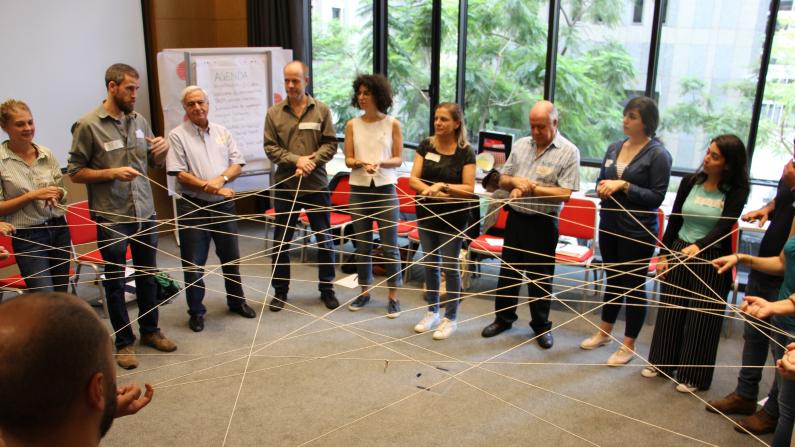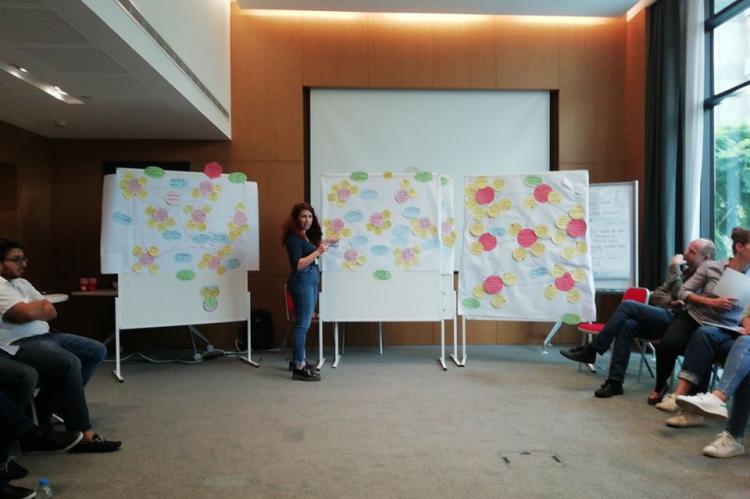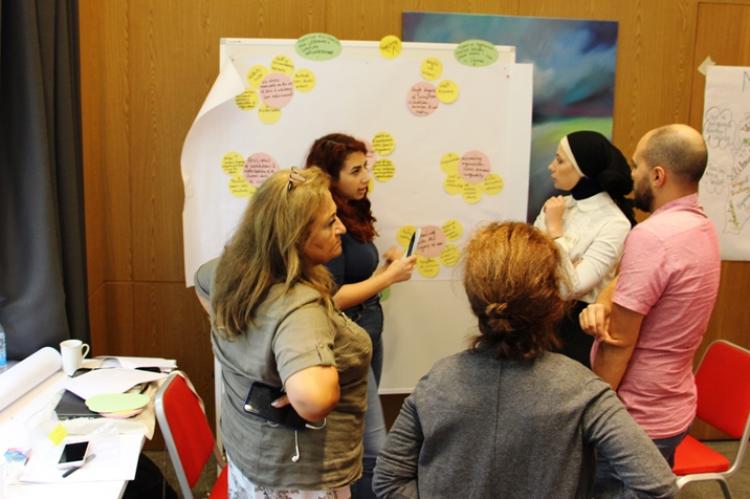
Civil Peace Service in Lebanon
The German Civil Peace Service aims to strengthen civil society and peacebuilding as a joint approach of government and civil society organisations. Until today, the two CPS organisations with their various partners have engaged mainly in four programmes: Dealing with the Past and Peace Education; Social Participation/Community Mobilising; Dialogue and Media Work and Capacity Development. Within these programmes, the two organisations mainly focus on conflict transformation and non-violent communication as well as supporting NGOs according to their needs. In the field of conflict transformation and peace work in Lebanon, organisations like forumZFD and GIZ-CPS closely work together with their partner organisations. For that reason, it is important to jointly develop the regular update of the TASP.
The Transagency Country Strategy Paper as a Basis for Peace Work
With a joint Transagency Country Strategy Paper, the CPS organisations in each country are aiming to exchange experiences to cooperate with and complement each other. In order to strengthen the potential impact of Civil Peace Service, the organisations in each country develop a joint strategy, agreeing on common objectives.
One of the core elements of the CPS approach and conflict transformation in general is analysing the context of conflicts and work systemically. This means that elements should not be understood as autonomous isolated phenomena, but rather as systemically inter-linked. An understanding of systemic inter-dependence is crucial for the CPS approach, especially for the identification of key driving factors and lines of conflict.
The Workshop
In an introductory game, all participants were connected to each other by a string. Through the exercise, it became visible how dependency exists within one system and how changes can affect its different elements. After the interactive introduction, Bernhard Hillenkamp from forumZFD and Urte Luetzen from GIZ-CPS gave input to the main elements of the TASP. The presentation included an overview on the assumed key driving factors and mental models of conflicts in Lebanon. A key driving factor is a dynamic or an element that the conflict would not exist without, or at least would be significantly different. Another important element of a systemic conflict analysis are so-called mental models. These aim to portray mindsets of ways of how people think and perceive reality. Mental models therefore want to show what elements impact on the actions of people living in the system.
After the brief input of Bernhard and Urte, the participants, in groupwork, discussed the conflict analysis and revised some of the elements and aspects. Finally, the groups identified potential mental models and how they could be connected to the key driving factors. In an interactive process, the three working groups developed new elements of the conflict analysis to be included in the revised TASP. Overall the workshop showed how important it is to discuss concepts, exchange experiences and reinforce collaboration.
We are looking forward to the next steps of advancing the Transagency Country Strategy Paper with our partners.

